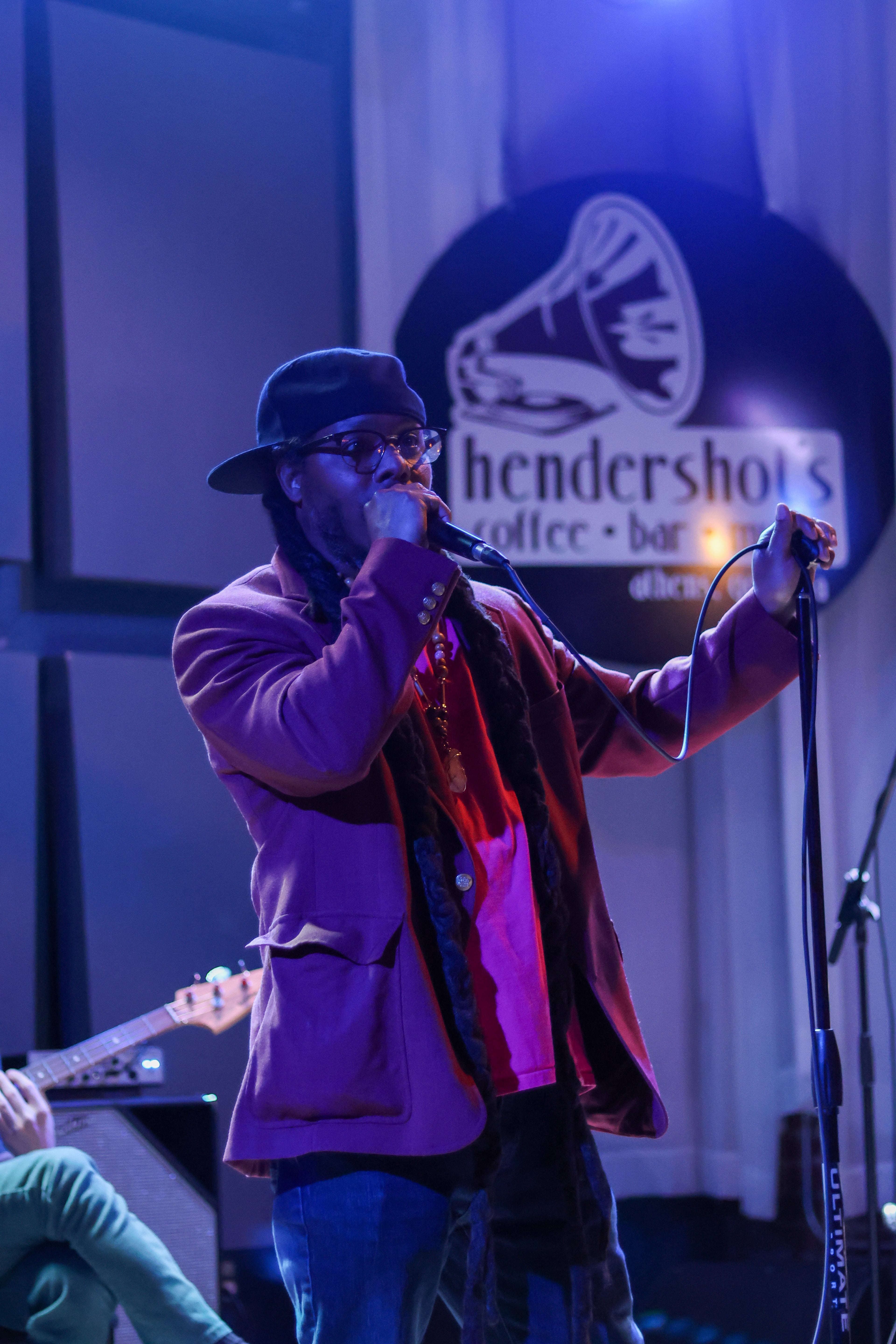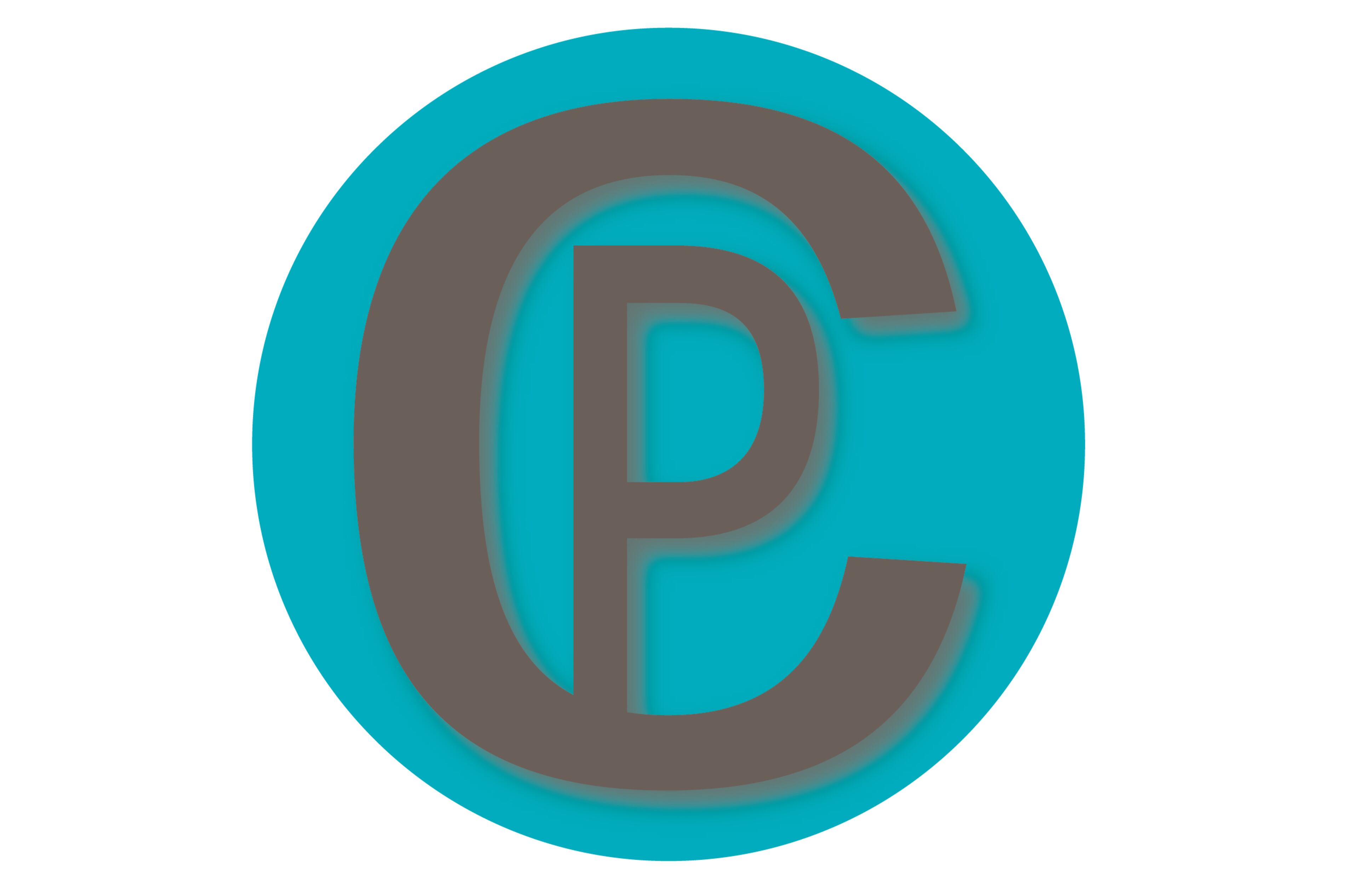How Athens hip-hop artists address mental health struggles

At Montu Miller’s monthly open mic night, Hendershot’s in Athens fills with beats, rhymes and riffs. Each artist waits patiently between sets for Miller, owner of ATHfactor-Liberty Entertainment, to pull their name from a bucket. Then they take the stage at the coffeehouse and bar, ready to freestyle, rap or recite to the band’s steady rhythm.
On a chilly November night, Miller introduced a big presence to the small stage, stopping the regular lineup to bring Ismeal Cuthbertson, who performs as Ishues, under the spotlight.
“You don’t normally get to see (Ishues) in this kind of atmosphere,” Miller said to the crowd. “He’s one of these that straight up and down with his hands, blood, sweat, spit helped build this community we got going on here.”

Ishues, an inducted musician in the Athens Music Walk of Fame, started his performance introducing his song, “Pick Yourself Up.”
“I wrote this song in a really dark place. I was fortunate to have a lot of people around me to help me to navigate through that darkness. And I’m sure everybody in this room can relate to that,” Ishues said on stage. “But at the end of the day… you have the strength that you need to pull yourself out of it.”
Ishues has been vocal about his struggles with mental health, and how they have been a barrier in his career. Many Black artists, especially for males, face barriers to access for care and stigma toward seeking help. Few opportunities to book shows in years past have only worsened the mental health of some artists fighting to establish their art.
“Coming from the Black experience… we ignore (mental health) until it gets out of hand,” Ishues said in an interview. “I myself have suffered from mental health issues that I had to push through in order to be where I’m at right now.”
Athens’ ‘discrimination problem’
Miller’s monthly open mic night speaks to how far hip-hop has come as a genre in Athens. This year is the 50th anniversary of hip-hop, and Athens-Clarke County Mayor Kelly Girtz declared May 18 as Athens Hip-Hop Culture Appreciation Day.
“Athens has long been noted for our creative culture, and that extends to our hip-hop scene,” Girtz said in a November interview. “I want to make sure every facet of our community is honored for their contributions, especially scenes like hip-hop that may have been marginalized at times in the past.”
The genre and Black excellence are recognized in the annual Athens Hip Hop Awards, which celebrated its ninth year in 2023 with a ceremony at the iconic 40 Watt Club. But Ishues remembers when local hip-hop was underground, unwelcome in most popular Athens venues.

“The city as a whole didn’t really recognize the Athens hip-hop scene,” Ishues said. “You have to acknowledge that Athens had a very huge discrimination problem.”
Some downtown bars have used dress codes to discriminate against Black patrons, according to Ishues, Miller and Reginald Sykes, who performs in Athens as DJ Chief Rocka. Hip-hop artists had little hope of booking shows, Miller said.
“If we can’t even go in there to even scope out the place, you definitely ain’t gonna let us come in here and rock a show,” he said.
Sykes said he believes this fight, and some venues’ apprehension to booking hip-hop and rap artists, affects the mental health of artists. Without opportunities to book shows and get paid for their passion, hip-hop artists have not had reliable income from their music. The lack of recognition takes a toll, Sykes said.
“We’re human like anybody else,” Sykes said. “You’re pouring all your heart into your art, and you (keep) getting turned down, because you don’t have anywhere to play at … You give all your all to your entertainment and nobody accepts it. Or nobody wants to hear it or you don’t have an outlet for it.”
‘Showing weakness is a weakness’
Despite the toll of encountering discrimination and a lack of recognition, not everyone is open to seeking help. Sykes sees fewer resources and opportunities for men to be candid about their mental health.
“We hold a lot in as men, because we are supposed to be hard and brave and all of that, when really we’re not,” Sykes said. “We’re human as well, we just don’t know how to express it sometimes.”
This expectation for strength can be even greater for Black artists, Ishues said. He’s had several friends take their lives.
“Coming from a lot of the backgrounds that we come from … living in the hood or our family dynamic, poverty … being taught that showing weakness is a weakness,” Ishues said. “We didn’t grow up in a culture where therapy was encouraged … We were always told to push it down and keep pushing.”
Around five years ago, Ishues said he finally sought professional help, connecting with Nuçi’s Space to help him through his anxiety. The nonprofit musician resource center, located near downtown Athens and the University of Georgia’s campus, works to prevent suicide and support musicians with their mental health.

Due to the stigmas surrounding mental health in different communities, everyone doesn’t have the same ability to seek help nor the awareness of resources available.
“Different populations in different cultures have their own barriers,” said Kara Johnson, the health and wellness programs director at Nuçi’s Space. “Which can impact who comes in and who knows that we exist and who feels safe.”
Georgia is ranked No. 2 among all U.S. states for adults with the prevalence of any mental illness, according to the 2023 report titled, “The State of Mental Health in America” by Mental Health America.
“Post-COVID, the Black community has gotten a lot better at not stigmatizing mental health and it is becoming more of a talked-about issue,” Miller said. “But for many, many, many, many years before that, it was always a stigma.”
Barriers to access
For artists who are not employed, don’t have insurance or who have limited coverage, seeking mental health care can be expensive. Black adults remained more likely to be uninsured (11%) than white adults (7%), according to the 2021 data from the Kaiser Family Foundation.
Even when therapy is inaccessible or stigmatized, the emotional outlet of music can be critical for those who have experienced poverty, Miller said. Johnson at Nuci’s Space added that musicians, for their wellness, have to be able to have enough time to pour into their art, which is a “constant struggle.”
“Many of our clients are dealing with, again, being low income, and trying to find that balance of I have to be able to work one way or another to support myself,” Johnson said.
But Miller said more programming is needed to reach Athens musicians struggling with mental health.

“You also have a lot of artists coming from poverty in urban areas, and not growing up in the best environments,” Miller said. “And sometimes their music is the only therapy they have.”
Music as therapy, community as support
Another source of strength is Athens’ hip-hop community, which has “grown into a big family,” Ishues said. For Miller, the unification of the hip-hop scene is more than just a joining of genres, but a movement to make change in the city.
“If we truly could just somehow get together on the same page. I really feel like Athens … could be that shining city on the hill,” Miller said. “With the mental health issue, with the poverty issue, with everything that’s going on … if we really just stopped for a minute and came together and looked for answers, we could find them.”
This story is written by the Covering Poverty project, which is part of the Cox Institute’s Journalism Writing Lab at the University of Georgia.

Today’s story comes from our partner, the Covering Poverty project, which is part of the Journalism Writing Lab, an initiative of the Cox Institute for Journalism Innovation, Management and Leadership at the University of Georgia. This story and others will become part of an online toolkit, covering poverty.uga.edu, which is devoted to helping journalists across the country cover meaningful stories about people and poverty-related matters.
If you have any feedback or questions about our partnerships, you can contact Senior Manager of Partnerships Nicole Williams via email at nicole.williams@ajc.com.
